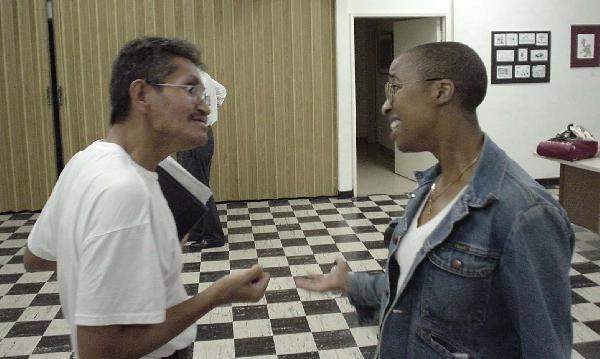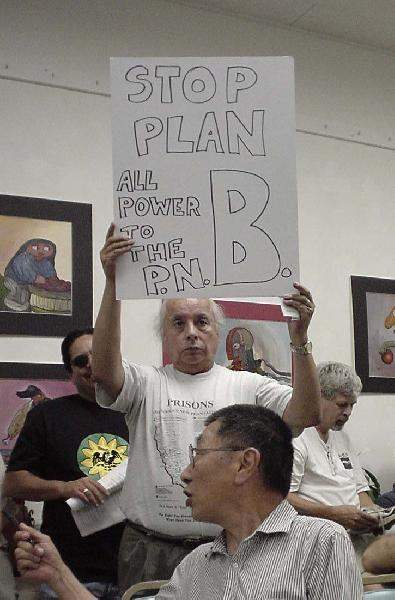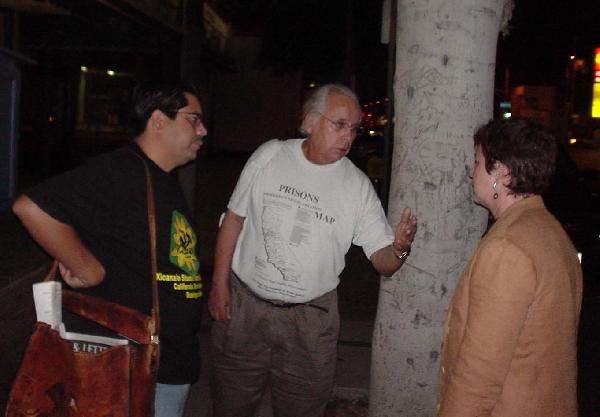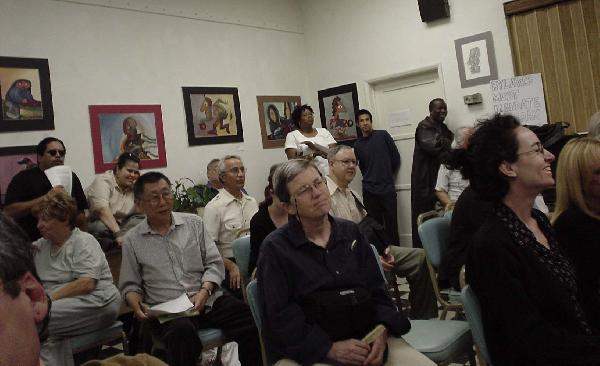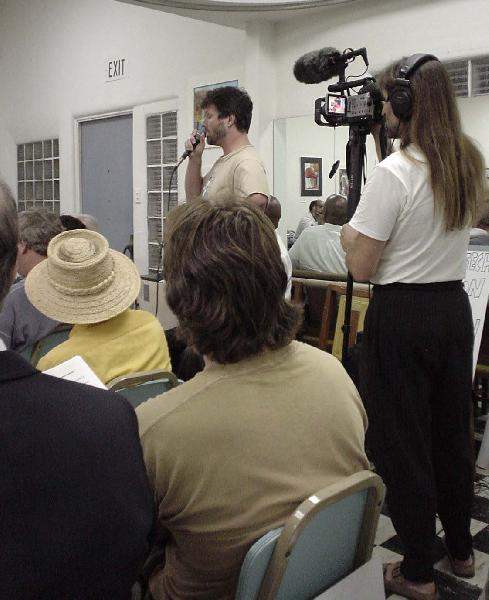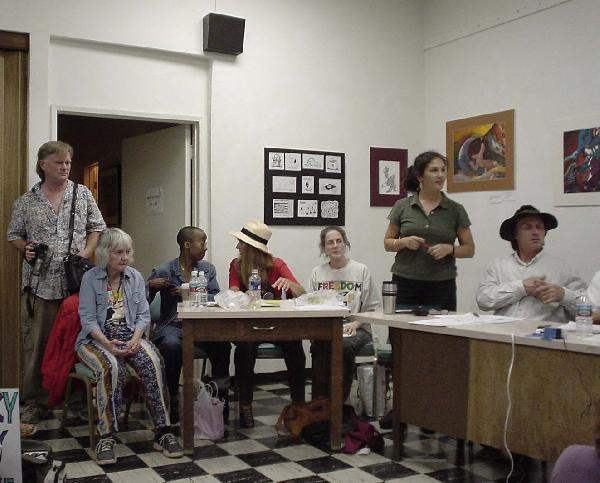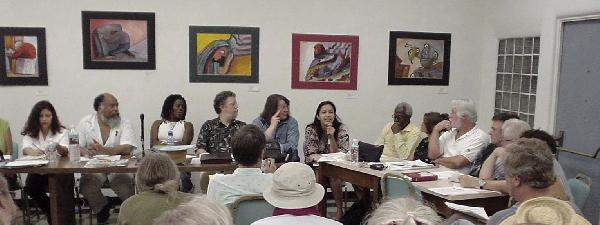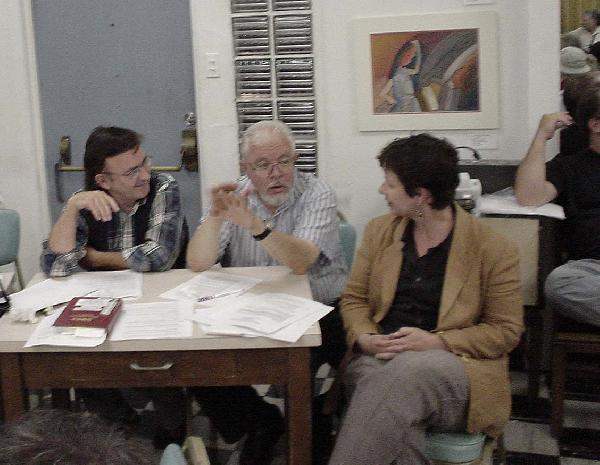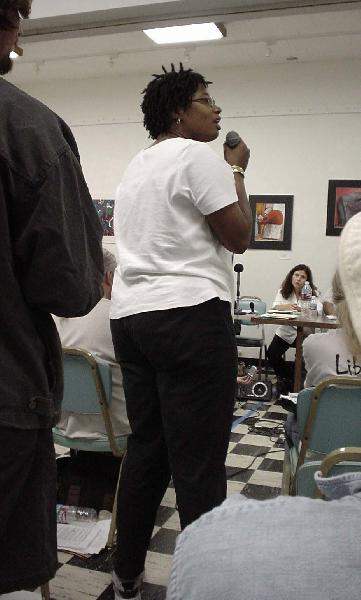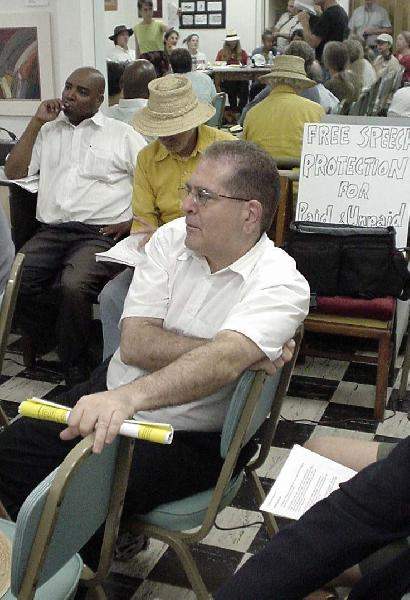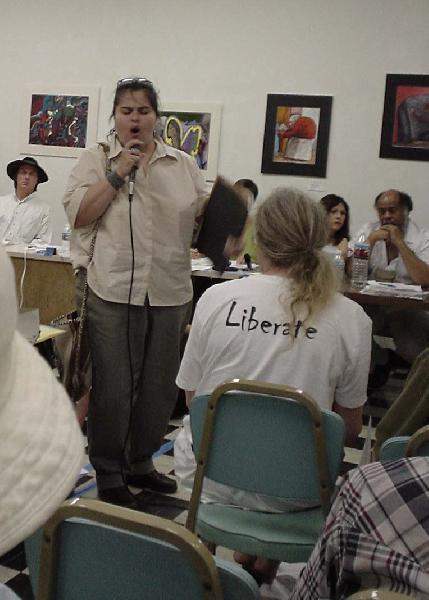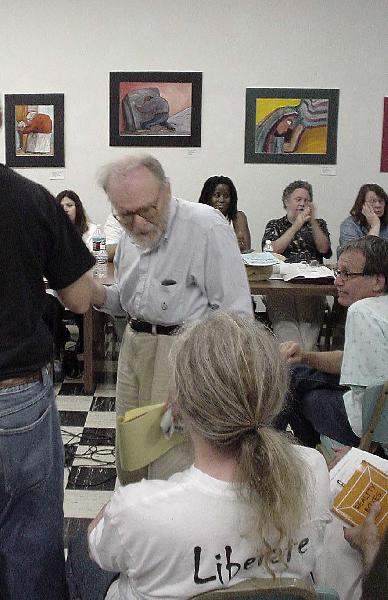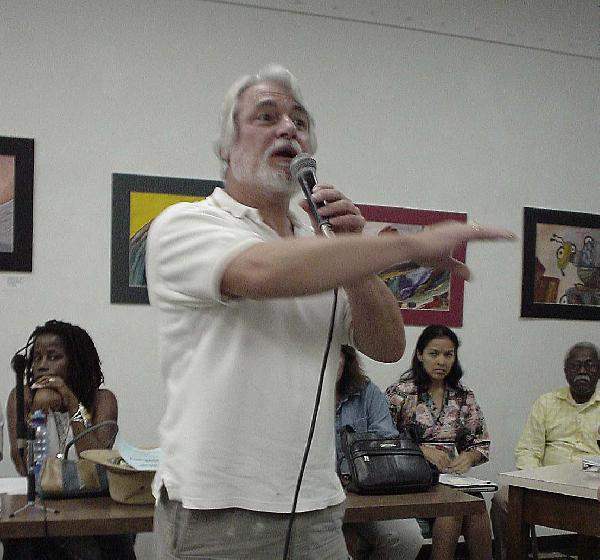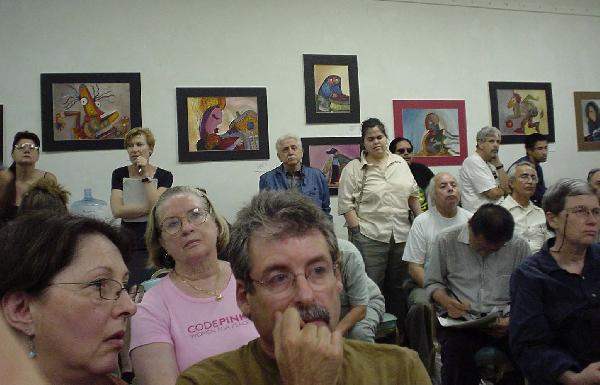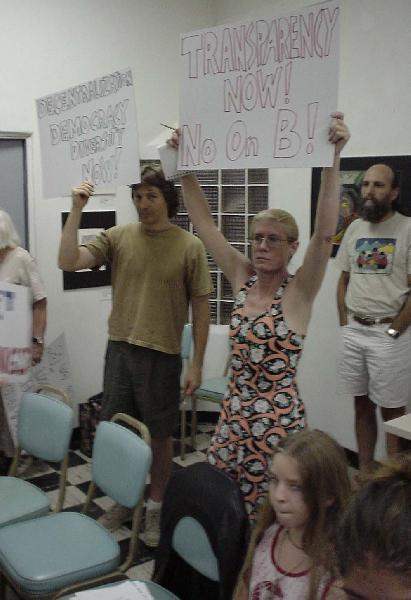| About Us | Contact Us | Calendar | Publish | RSS |
|---|
|
Features • latest news • best of news • syndication • commentary Feature Categories IMC Network:
Original Citieswww.indymedia.org africa: ambazonia canarias estrecho / madiaq kenya nigeria south africa canada: hamilton london, ontario maritimes montreal ontario ottawa quebec thunder bay vancouver victoria windsor winnipeg east asia: burma jakarta japan korea manila qc europe: abruzzo alacant andorra antwerpen armenia athens austria barcelona belarus belgium belgrade bristol brussels bulgaria calabria croatia cyprus emilia-romagna estrecho / madiaq euskal herria galiza germany grenoble hungary ireland istanbul italy la plana liege liguria lille linksunten lombardia london madrid malta marseille nantes napoli netherlands nice northern england norway oost-vlaanderen paris/Île-de-france patras piemonte poland portugal roma romania russia saint-petersburg scotland sverige switzerland thessaloniki torun toscana toulouse ukraine united kingdom valencia latin america: argentina bolivia chiapas chile chile sur cmi brasil colombia ecuador mexico peru puerto rico qollasuyu rosario santiago tijuana uruguay valparaiso venezuela venezuela oceania: adelaide aotearoa brisbane burma darwin jakarta manila melbourne perth qc sydney south asia: india mumbai united states: arizona arkansas asheville atlanta austin baltimore big muddy binghamton boston buffalo charlottesville chicago cleveland colorado columbus dc hawaii houston hudson mohawk kansas city la madison maine miami michigan milwaukee minneapolis/st. paul new hampshire new jersey new mexico new orleans north carolina north texas nyc oklahoma philadelphia pittsburgh portland richmond rochester rogue valley saint louis san diego san francisco san francisco bay area santa barbara santa cruz, ca sarasota seattle tampa bay tennessee urbana-champaign vermont western mass worcester west asia: armenia beirut israel palestine process: fbi/legal updates mailing lists process & imc docs tech volunteer projects: print radio satellite tv video regions: oceania united states topics: biotechSurviving Citieswww.indymedia.org africa: canada: quebec east asia: japan europe: athens barcelona belgium bristol brussels cyprus germany grenoble ireland istanbul lille linksunten nantes netherlands norway portugal united kingdom latin america: argentina cmi brasil rosario oceania: aotearoa united states: austin big muddy binghamton boston chicago columbus la michigan nyc portland rochester saint louis san diego san francisco bay area santa cruz, ca tennessee urbana-champaign worcester west asia: palestine process: fbi/legal updates process & imc docs projects: radio satellite tv |
printable version
- js reader version
- view hidden posts
- tags and related articles
View article without comments KPFK LAB Votes Vs. Bylaws Draft Bby KPFK Listener Activist Wednesday, Jul. 23, 2003 at 3:19 PMThe Local Advisory Board (LAB) of Los Angeles Pacifica Network Radio Station KPFK (90.7 FM) met Monday evening and voted against endorsing draft "B" of Pacifica's Proposed Bylaws.
The Local Advisory Board (LAB) of Los Angeles Pacifica Network Radio Station KPFK (90.7 FM) met Monday evening and voted against endorsing draft "B" of Pacifica's Proposed Bylaws.
Pacifica has been in a state of creative upheaval ever since a court settlement was reached in December of 2001 requiring the network to create new bylaws that define a process whereby its governing boards will be elected by its listener-supporters. Pacifica is the nation's only non-corporate, listener-funded radio network (NPR is actually a subscription service and receives a large part of its budget from corporations). The Pacifica Foundation is a private non-profit corporation that holds and manages the licenses of the network's five radio stations, located in Berkeley, CA (KPFA), NY City (WBAI), Washington, D.C. (WPFW), Houston, TX (KPFT) and Los Angeles (KPFK). Together, these licenses have a commercial value of hundreds of millions of dollars. But of far greater significance is the fact that Pacifica's stations are the most important source of broadcast news and public affairs programming that remains untainted by corporate influence. Programs funded and/or produced by the network appear on numerous affiliate community stations throughout the nation, as well, increasing Pacifica's importance. Pacifica's former (pre legal settlement) national board was in the process of making changes to the programming of Pacifica that were intended to mainstream its content. Plans were also being made for the possible sale of one or more Pacifica stations. That is what sparked a set of lawsuits - first by the five local advisory boards (LABs), and then on behalf of the listeners themselves. These lawsuits were ultimately successful in forcing a legal settlement agreement that established an interim Pacifica National Board (iPNB), on which representatives of the old (defendant) Board had five seats, the plaintiffs had five seats, and representatives of the LABs (who mainly were aligned with plaintiffs) had five seats. A process was defined whereby new bylaws would be written, by the iPNB with input from the LABS, for the corporation. These bylaws were to include a process whereby local station boards (LSBs) would be elected by listener-supporters and staff members, and whereby the national board would be elected (in most models by the elected LSBs). The agreement requires that these bylaws be approved by 2/3 of the members of the iPNB, and that election-related portions be approved by three of the five present LABs. The vote taken by the KPFK LAB Monday night (7/21/03) was an up or down vote on a specific bylaws draft, known as draft "B." Draft "B" included many features that were objectionable to members of the KPFK LAB and to KPFK's listener community. Even those who spoke in favor of its passage almost universally admitted that it had serious problems, but for various reasons (see below) they urged that it be passed nonetheless. The problems with draft B, some or all of which were acknowledged by most of the participants, are as follows: * *Corruption of Democratic Process - -- "B" allows members of the national board (PNB) to appoint three additional members to their own ranks. These additional seats would tend to make even a slim majority undefeatable. -- "B" allows the members of the PNB to vote (by a 3/4 majority) to remove any (listener- or staff-elected) member of a local board. -- "B" allows the members of the PNB and LSBs to amend any bylaws other than those that affect a specific narrowly-defined range of issues without requiring listener approval. -- "B" does not require any minimum amount of on-air coverage of LSB elections, and it further allows present LABs (or later, LSBs) to remain in place until the next schedule election if an election quorum of 10 percent of voters is not met within two weeks of the scheduled close of elections. ** Lack of Support for Diversity -- There simply is no language regarding diversity in Draft B that has any binding effect. Many listeners support adjustments to electoral results to ensure a minimum amount of diversity on Pacifica's boards. Such provisions are entirely lacking in draft B. ** Centralization of Power -- Draft B centralizes power in the hands of the national board, with LSBs exercising control of various functions only at the sufferance of the PNB. Of particular concern is the centralization of control over programming and over the budgets of local stations. The above is really only a gloss on the problems that exist in draft B (which is about 50 pages long), but it does touch upon some of the major issues. Despite these mostly acknowledged flaws, a number of KPFK LAB members and listeners urged that draft "B" should nonetheless be passed. Some of their arguments are presented below. Because I am opposed to passage of draft B, I have listed my own interpretations and responses to each argument presented. Please note that just my arguments that these reasons are mostly invalid does not mean that they were not sincerely believed by the LAB members who may have supported B because of them. There is a general feeling among listeners opposing B to whom I have spoken that those supporting passage are for the most part very well-intentioned. In fact, the LAB did a wonderful job in carrying on a civil debate on this issue and was very respectful and responsive in dealing with listener comments. Also, please watch for opposing views at the end of this article from those who wanted to see B passed (this Indymedia article has been announced on Pacifica's major e-mail lists and people are being invited to comment): * The bylaws process has dragged on for a very long time (about 18 months) and frankly many people are fatigued by it, and some expressed fears that it could have a damaging effect upon the network. COMMENTS: Yes it has been a long process but if we pass bylaws that compromise democracy and which do not provide any remedies for underrepresented groups, completely apart from the issues of justice involved, we risk throwing Pacifica into years of turmoil, and subject ourselves to the threat of takeover from the inside through centralization of power. Such an attempted takeover was the basis for the lawsuits that were brought against the old Board. * According to the settlement agreement for the lawsuits against the old Board, bylaws were to have been produced by January of this year. Pacifica has already received two extensions from the judge. Some people expressed fears that Pacifica might not get an extension and that the court might impose its own solution or even take us back to Pacifica's original bylaws, which did not include elections. COMMENTS: This judge is deemed by most to be friendly to Pacifica and willing to let us solve our own problems so long as reasonble hope of resolution remains. He also threw out a motion brought by two former members of the old Board to place Pacifica into receivership. * Some expressed a belief that Pacifica could amend its flawed bylaws at a later date using the amendment process defined in draft "B," and that that might be easier than trying to pass good bylaws in the first place. COMMENTS: Under draft "B," every local board seat and every national board seat would be elected during Pacifica's first "transition" elections. As already mentioned, these bylaws do not require any minimum on-air coverage of elections, and allow present LSBs to remain in place if the local election quorum of 10 percent of all eligible listeners is not met. They also allow the *interim* national board to set an arbitrarily short timetable for these initial elections (only). Once Pacifica elects boards by this admittedly bad process, the national board can centralize control over programming and budget, defining the audience that will elect boards during the next elections and using finances as a further tool to consolidate its influence. With the approval of any three LSBs, the national board can, by a majority vote, also amend any bylaws other than those that deal with a narrowly-defined, mostly election-related, set of issues. The proposal of amendments by listener-supporters (as opposed to LSBs and the PNB) is difficult and can be reversed by members of the Boards. This is only a partial picture, but the upshot is that we cannot afford to hold these critical first elections under flawed bylaws, as the game will be over before there is any possibility of amending them.. * There were also those who maintained that there are those on the iPNB and in the LABs who do not want any bylaws at all for reasons that never seemed to be fully described by those making this claim. Since two other LABs had already passed draft B, this group saw the KPFK LAB's vote as a unique opportunity that might never come again. COMMENTS: This is an argument that I find particularly upsetting. To understand why, I need to provide some background on how this "unique opportunity" to pass draft B arose. As mentioned earlier, under the settlement agreement, any bylaws must be approved by not only three of the five LABs, but also by 2/3 of those iPNB members "present and voting." Within the iPNB, the major dispute involves the lack of diversity in draft B. An opposing draft, draft "A," that attempts to provide some adjustments to board composition to ensure diversity, was supported by a minority faction of the iPNB - specifically Ray LaForest and Janice K. Bryant, both persons of color. When the vote on B was taken, there were two other proposals on the table as well: A and C. 12 of the 15 iPNB members were present to vote. 2/3 of 12 is 8, so 8 votes should have been required to pass draft B. But the vote was not presented as a straight up or down vote on B. Instead, iPNB members were asked to choose one of A, B or C. Seven votes were cast for B. Two votes were cast for A. Three members decided to vote not to all three choices. The chair ruled therefore that B had not passed. At this point what *should* have occurred is the iPNB plurality should have negotiated with those concerned about diversity and modified their proposal for a later vote that could gain the required 2/3 approval. But instead of doing that, a group of iPNB members led by Secretary Carol Spooner and fellow lawyer Dave Fertig decided to appeal the vote to the judge to see if they could pass B through the iPNB without the need to negotiate with these two members who were concerned about diversity. Their argument before the judge was that because the vote was presented (inappropriately, in my opinion) as a three-way vote, a vote of no on *all* drafts counted as "not voting." This reduced the number of members deemed to be "present and voting" from 12 to 9, thereby allowing the 7 votes for draft B to count as a 2/3 majority of those "present and voting!" The iPNB chair Leslie Cagan disagreed with this argument, but Fertig took it to the judge presiding over the settlement and the judge certified the passage of draft B, effectively disenfranchising LaForest and Bryant. The judge made a bad decision, in my opinion. The settlement agreement requires 2/3 support by those present and voting for any bylaws change to go through. Nowhere does it allow the results of a three-way vote to be considered as passing amendments to bylaws. In fact, under Spooner and Fertig's reasoning, every single member of the iPNB other than, say, Spooner, could have voted against every single draft, and if Spooner had voted for B, then it would be considered to have passed - *unanimously*. So, this manipulation of a vote that effectively disenfranchised two Board members of color concerned about diversity was the basis for the "unique opportunity" offered last night to the KPFK LAB to pass these defective draft B bylaws. The opportunity was "unique" because it is unlikely that dissident iPNB members would allow themselves to be fooled into a three-way vote again. Perhaps you can see now why I am disgusted by this "we must pass it now or never" claim. The so-called "opportunity" was grounded in the effective disenfranchisement of two people of color whose concerns were about the diversity of Pacifica's boards. There may be other arguments that I have missed and I hope that others reading this will add their contributions. One of the most exciting revelations at the meeting came from KPFK LAB Chair Lydia Brazon. She had decided to change her vote from support of B to opposition. Part of her decision, she said, was based upon a discussion that she had had with Pacifica's own attorney Dan Siegel, in which he had expressed his very strong opinion that Pacifica would not violate any laws and was unlikely to be successfully sued for "discrimination" if Pacifica incorporated strong diversity adjustments into its bylaws. In general, his argument was that a non-profit had never been subject to a lawsuit for requiring diversity on its boards, and that since there is no compensation or other material benefit associated with service on Pacifica's Boards, no person could claim to have been injured by election rules that discriminate based upon race or gender in order to ensure diversity. He also mentioned that Pacifica might lose its Corporation for Public Broadcasting funding if it *failed* to maintain diverse boards. CPB funding has been a matter of great controversy within Pacifica and personally I think we should dump it as soon as we can to avoid the possibility of pressure from that direction. However, the Foundation is still emerging, very successfully, from debt from its recent legal struggle and a decision has not yet been made to give up this funding. The diversity issue has been one of the major sticking points (along with internal democracy and centralization) in the passage of bylaws, and, as Brazon herself commented, we almost certainly could have passed bylaws in January if the diversity issue had been resolved. iPNB Secretary and bylaws maven Carol Spooner led the fight to remove electoral diversity adjustments from our bylaws on the grounds that such adjustments were, as she repeatedly asserted, "illegal." She claimed that she was protecting the Foundation from possible lawsuits by keeping such provisions out of our bylaws. It must be said that without Carol's efforts starting several years ago in fighting against the old Board (she filed one of the two major lawsuits that resulted in the settlement agreement), we would not be arguing about election bylaws or diversity today. Still, I am miffed that Pacifica's attorney, who obviously was accessible to the iPNB, apparently either was not consulted or not listened to when Carol decided upon her position on the diversity issue, which she has always claimed was based upon the "illegality" of diversity. After a period of intense LAB and listener debate, draft B was voted down by a slender margin: 11 for B, 12 against B. Another revelation at this meeting was that activists including LAB members and listeners from several signal areas are now hard at work on a new bylaws draft which they believe will remedy the perceived deficiencies of B. It is hoped that agreement can be reached on this, now that some the the legal obstructions to implementing diversity seem to have been removed (although I will not be at all surprised if these claims of "illegality" continue to be made). Nonetheless, many Pacifica activists suspect that Spooner and Fertig may be headed back to court if they do not get the bylaws they want - possibly very soon. If that occurs, it will probably result in a court-ordered mediation process. In the meantime, in the midst of all of this travail, our heroic staff is still sending great programming out over KPFK and the other Pacifica stations - Pacifica is still doing its job in this current period of crisis! Stay tuned to your local Pacifica Station! 90.7 FM - kpfk.org. Also, kpft.org, wbai.org, kpfa.orb and wpfw.org. A copy of draft "B" can be found at the following URL: http://www.pacifica.org/governance/bylaws_finaldraft.html A copy of the legal settlement agreement can be fond at the following URL: http://www.pacifica.org/governance/settlement.html Whatever your position on B, I hope you enjoy the pictures of the KPFK LAB meeting, which appear below.
Report this post as:
Bus Riders Union member speaks with LAB Member Eben Rayby KPFK Listener Activist Wednesday, Jul. 23, 2003 at 3:19 PM
error
Report this post as:
Chicano Activists Express Opposition to Plan Bby KPFK Listener Activist Wednesday, Jul. 23, 2003 at 3:19 PM
error
Report this post as:
Chicano Activists Converse with LAB Member Leslie Radfordby KPFK Listener Activist Wednesday, Jul. 23, 2003 at 3:19 PM
Radford is a leading opponent of Plan B and one of the members working ot draft new bylaws intended to create diverse Boards.
Report this post as:
Listeners at Rear of Meeting Roomby KPFK Listener Activist Wednesday, Jul. 23, 2003 at 3:19 PM
error
Report this post as:
Dave Adelson Gives History of Bylaws Struggleby KPFK Listener Activist Wednesday, Jul. 23, 2003 at 3:19 PM
Former LAB Chair and present LAB advisor on election issues Dave Adelson provides background on how we can to the point of voting on draft B. Adelson also expressed concern that draft B did not protect staff LSB members from losing their LSB positions due to being fired by management.
Report this post as:
LAB Members at Center Left Tableby KPFK Listener Activist Wednesday, Jul. 23, 2003 at 3:19 PM
Left and Right in the following pictures are intended positionally, not politically.
Report this post as:
LAB Members at Leftmost Tableby KPFK Listener Activist Wednesday, Jul. 23, 2003 at 3:19 PM
error
Report this post as:
LAB members to Right of Centerby KPFK Listener Activist Wednesday, Jul. 23, 2003 at 3:19 PM
error
Report this post as:
LAB Members at Right Tableby KPFK Listener Activist Wednesday, Jul. 23, 2003 at 3:19 PM
error
Report this post as:
Interim Program Council Member Latrice Dixon Speaks Vs. Draft Bby KPFK Listener Activist Wednesday, Jul. 23, 2003 at 3:19 PM
error
Report this post as:
Listener Activists with No On B Signsby KPFK Listener Activist Wednesday, Jul. 23, 2003 at 3:19 PM
error
Report this post as:
Listener Activist with No On B Signby KPFK Listener Activist Wednesday, Jul. 23, 2003 at 3:19 PM
error
Report this post as:
Michael Novickby KPFK Listener Activist Wednesday, Jul. 23, 2003 at 3:19 PM
Michael Novick, Publisher and Editor of "Turning the Tide" and for decades an activist against racism, attended and spoke against passage of draft B.
Report this post as:
Native American Activist Speak Vs. Draft Bby KPFK Listener Activist Wednesday, Jul. 23, 2003 at 3:19 PM
error
Report this post as:
No On B Sign Held BY Listener Activistby KPFK Listener Activist Wednesday, Jul. 23, 2003 at 3:19 PM
error
Report this post as:
KPFK's Third General Managerby KPFK Listener Activist Wednesday, Jul. 23, 2003 at 3:19 PM
I didn't catch his name but he is the third (ever) General Manager of KPFK. He did not speak either for or against draft B.
Report this post as:
LAB Member Tom Camarella Addresses Listenersby KPFK Listener Activist Wednesday, Jul. 23, 2003 at 3:19 PM
error
Report this post as:
Listeners at Back of Roomby KPFK Listener Activist Wednesday, Jul. 23, 2003 at 3:19 PM
error
Report this post as:
Listeners with No On B Signsby KPFK Listener Activist Wednesday, Jul. 23, 2003 at 3:19 PM
error
Report this post as:
Corrected Bylaws URLby KPFK Listener Activist Wednesday, Jul. 23, 2003 at 4:54 PMI gave the wrong link for bylaws draft B. The correct URL is:
http://wbai.net/bylaws_revise/br_draft_B6-19-03.html
Report this post as:
A-OK!by Edwin Johnston (KPFT listener) Wednesday, Jul. 23, 2003 at 5:51 PMedi@hal-pc.org Wow, what an extraordianry treat!
Great crowd there, certainly represents the perennial image of Pacifica as the great melting pot. Observations: 1. If that is Loraine Mirza, then I have been far too hard on her. If it is true, as slasher tells me, that Loraine is actually 153 years old, then I have previously been responding to someone I thought much younger. But to be honest, for such an ol' gal, Loraine's got to be pretty hip. 2. If that is Leslie Radford, then she looks like one of my aunts (at least one as I knew them when I was much younger). I had Ms. Radford figured as looking like a college prof version of Ann Coulter, maybe more like the woman in the sleeveless dress holding up a sign in the final photo. Great earrings, Leslie! 3. And there's Rafael, but where, oh where, is Jonathan Markowitz and slasher? 4. Good to see ol' Dave Adelson still sporting the whiskers. He's got that mountain man image workin' for him. Yeeeahhh, baby! Nobody would ever suspect him to be a dweeb, at least not from 10 yards out. 5. I always enjoy when they drag the old managers out from mothballs for this sort of function. Provides a sense of history. Luv it, luv it, luv it! 5. Who's the Gilda Radner look-alike wearing the FREEDOM shirt? (8th foto - lablefttable) Just curious. And is that a bag of grapes she has? Can't wait to visit LA again some day, so I can hang out with y'all. Maybe you can take me out to the Tragic Kingdom.
Report this post as:
Looking for photographerby John Tarleton Wednesday, Jul. 23, 2003 at 7:24 PMWe are interested in using some of these photos or the next issue of our biweekly paper The Indypendent. We are up against deadline in next 24 hours. Please call us at 212-684-8112 to let us know if you can email us a high resolution version of some of these photos.
Thank you! John Tarleton NYC Indymedia
Report this post as:
people need to get better informed about what's at stakeby Michael Lubin Thursday, Aug. 07, 2003 at 2:45 PMThe truth is, we have a TOTALLY unelected and unaccountable national board at Pacifica. The same is true of all but one local board. And power is currently totally centralized. That's not going to change until we get democratic bylaws passed.
Draft B, the national board's bylaws draft, is by far our best chance for this to happen. The national board is increasingly divided and unlikely to produce the two-thirds vote to pass bylaws again. If we don't pass the bylaws, we are likely to remain stuck with totally undemocratic boards. The only possible result is that the intractable turf wars that are already ravaging Pacifica will continue and intensify. The national board's bylaws draft is a compromise on which many, many people worked long and hard. Nobody got everything they wanted, but it is reasonable and quite democratic. It puts the listeners and staff in charge of Pacifica! Under the existing system, the existing national board members are in charge, with no recourse by anyone else. The draft also provides for boards to be elected by proportional representation, using Single Transferable Voting, the most democratic system there is. Any substantial minority group--political, racial, gender, philosophic, programmatic, or whatever--can gain fair representation, in proportion to their level of support, using this system. There are no guarantees of diversity seats in the bylaws, because the Supreme Court unfortunately made quite clear in Michigan that they will not allow any fixed formulas based on diversity. We CANNOT guarantee seats, but we CAN provide the most democratic framework possible, then work our butts off to get diverse candidate pools and diverse boards. And that's exactly what we plan to do, as soon as bylaws are in place. Please, folks--before you start blasting away, find out what's really going on! Defeating the national board's bylaws draft is NOT to going produce a more democratic structure. It's only going to produce a prolongation of the current total absence of democracy in Pacifica.
Report this post as:
|




